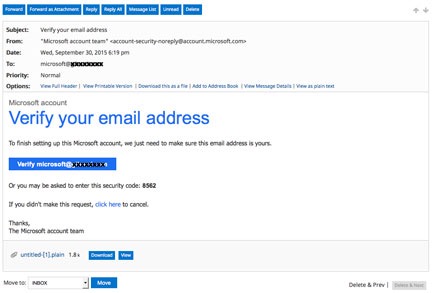Another rant. I’ll keep it short.
This morning, I went through my email inbox (currently 1795 messages, 10 unread) and found this message from a few days ago:

This is the email message I received from a video training company looking for authors.
Maybe I’m being oversensitive here — it certainly wouldn’t be the first time — but I’m trying to figure out why any author in his/her right mind would send a bunch of detailed ideas for potential video courses in response to an obviously boiler-plated email that doesn’t even include the name or title of the person sending it.
Testing for Legitimacy
A side note about Lynda.comI honestly don’t know why LinkedIn bought Lynda when it’s only a matter of time before there are hundreds of copycat sites out there, all cheaper. And what of the free content already available on YouTube? Video content is already going the way of the print content I used to create. Why buy a book when you can Google it? Why pay for a video when you can find one for free on YouTube? Quality doesn’t seem to be a concern anymore.
With Lynda’s current policy of replacing freelance experts with in house (i.e., non-royalty) authors, they can’t even claim to have better courses anymore. Those out-of-work experts have plenty of places to go — especially if they’re not as picky as I am.
I did some research. I looked at the website for the domain name the email came from. It looked legit — like a Lynda.com copycat site. A link at the bottom of the home page said they were looking for authors. I clicked it. No details at all: just a form to fill out with contact information. Apparently, they’d get in touch.
So at this point, I have no idea what kind of deal they’re offering authors. Do they even pay authors? I don’t know. I do know that I need to be paid — or feel confident that I will be paid — before I do any work, including developing ideas that it would be all too easy to have an “in house author” develop and record without compensating me. I’m not a complete idiot.
And anyone can whip up a real looking website these days. And was the grammar error in the email a typo or a sign that the email was sent by someone who doesn’t speak English regularly? Like someone at a content mill?
My reply was aloof:
I’m interested, but I need to know more about your author program before I make any proposals. I have a great deal of experience creating video courses, having authored and recorded about a dozen for Lynda.com over the years. Here’s a list: https://aneclecticmind.com/videos/ My areas of expertise include Mac OS, Microsoft Word, Microsoft Excel, Twitter, WordPress, and various niche software products. I’ve been writing books and articles about computing since 1990 and have had 85 books published since then.
If you’re interested in working with me, you’ll need to do a bit more than leave an anonymous message for me through a form on my blog. I’ve worked with a lot of publishers since 1990 and have learned that the serious ones are the ones who make personal contact and help me understand why I should want to work with them. I know I can benefit you; what can you do to benefit me?
Looking forward to hearing from you.
Maria
I don’t expect to get a response.
Another Site, another Courting
This reminds me a bit about a personal email I did get from another video training company about two years ago. This guy was in full sale mode, doing his best to tell me why I should be a writer for them, and why they wanted to get a bunch of my courses for their launch. There would be generous payment — 50% of the take on each course sold — but I’m smart enough to know that 50% of nothing is still nothing. Could they sell the courses they put online? I didn’t know.
I decided to wait a while to see how things went. After all, the whole thing could be a web version of vaporware. Six months after launch, I checked in. The site appeared to be up and running and there was content, although the courses weren’t very meaty. I emailed my contact to ask about sales figures. I never got a response. A year later, the site was down.
It would be nice to hitch up to a new wagon, but I need to be careful whose wagon I hitch up to. I don’t want to waste my time writing content for a publisher that I might not be properly compensated for.
How Desperate are Writers?
But again, these contacts and pleas for authors have me wondering: just how desperate are writers that they’d respond to an anonymous message like this with course ideas and outlines?
And how little do content publishers care about authors and content quality that they’d send out messages like this to anyone they think might take the bait?
How bad has the situation in publishing and content creation become?
 It takes, on average, 5 to 10 hours for a student pilot to learn how to hover. To hover, you need a feel for the controls. You can’t get a feel for the controls without actually manipulating the controls. The more you manipulate the controls, the better you learn how they feel.
It takes, on average, 5 to 10 hours for a student pilot to learn how to hover. To hover, you need a feel for the controls. You can’t get a feel for the controls without actually manipulating the controls. The more you manipulate the controls, the better you learn how they feel.

 Scammers/Spammers will say and do anything. Here’s proof.
Scammers/Spammers will say and do anything. Here’s proof.
